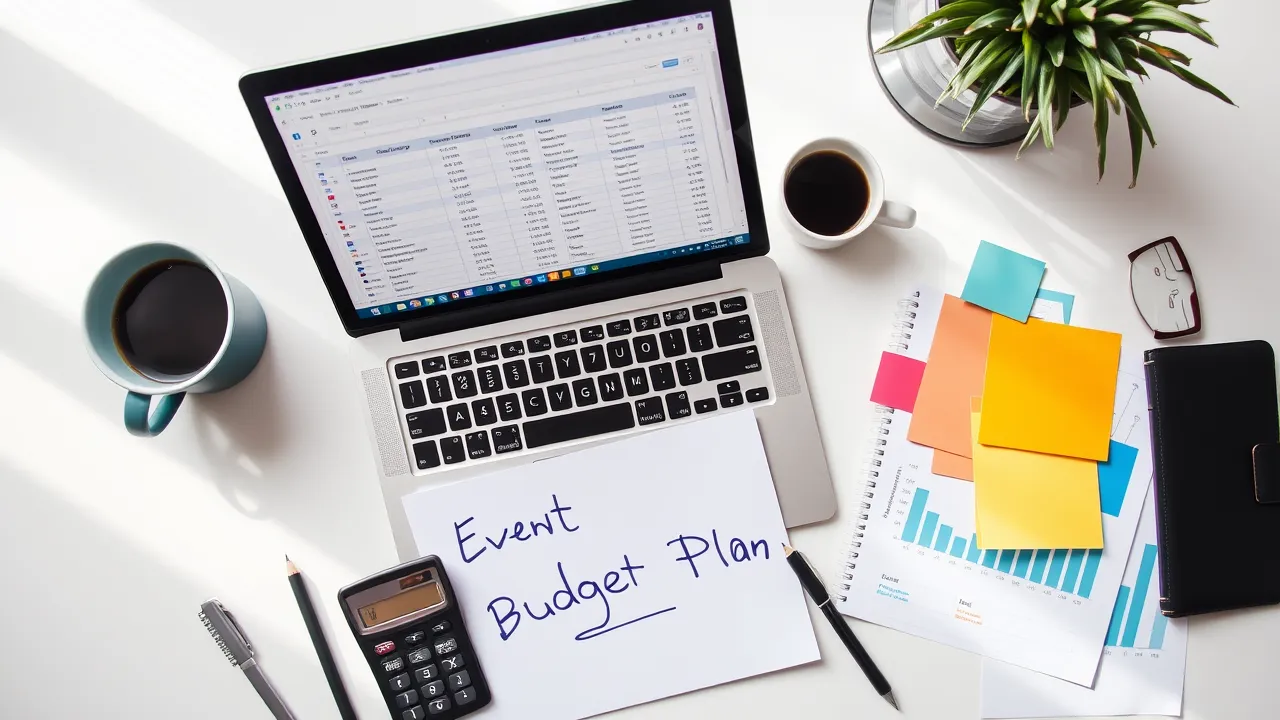How To Create The Best Event Budgeting Plan

Planning an event is exciting. But it can also be stressful if you do not manage the money part properly. That is why event budgeting is important. A good event budget plan helps you stay in control. It shows you where your money is going and helps you avoid surprises. Whether you are planning a small gathering or a large conference, the basics of event budget planning stay the same.
Understand Your Event Goals First
Before you start writing numbers, think about what kind of event you are planning. Is it formal or casual? Indoors or outdoors? Will there be food, music, or speakers? These questions help you figure out what you need to spend money on. Once you know that, you can begin to build your event budget plan.
Use An Event Budget Checklist
Now comes the part where you list all your expected costs. This is where an event budget checklist becomes useful. It keeps you from forgetting anything. Your checklist should include:
Venue costs
Food and drinks
Staff and helpers
Equipment and rentals
Decorations
Printing and signage
Permits or licenses
Marketing and ads
Travel and transport
Emergency fund
Even small things like name tags or parking fees should be listed. If you skip them, they might surprise you later.
Build Your Event Budget Template
Once you have your checklist ready, you can build your event budget template. This template is like a table or sheet where you write down all your costs. You can use a spreadsheet or any online tool. Keep it simple. Make columns for item name, estimated cost, actual cost, and notes. This helps you compare what you planned and what you actually spent.
Your event budget template should be easy to read. Do not make it too fancy. You are not trying to impress anyone. You are trying to stay organized.
Estimate Costs Carefully
Now you need to fill in your template with estimated costs. This part needs some thinking. You might need to call vendors or check prices online. Do not guess. Try to get real numbers. If you are not sure, write a range. For example, if catering might cost between ₹20,000 and ₹30,000, write that range.
Also, add a buffer. Things can change. Prices can go up. Someone might cancel. So keep 10–15% extra in your budget for safety.
Track Actual Spending
Once you start spending, update your template. Write down the actual cost next to the estimated cost. This helps you see if you are staying on track. If something costs more than planned, you can adjust other items. If something costs less, you can use that money elsewhere.
This is called event cost management. It means keeping an eye on your spending and making changes when needed. Do not wait till the end. Track your costs as you go.
Review And Adjust As Needed
Sometimes you will find that your plan needs changes. Maybe the venue is not available. Maybe the guest list grows. Maybe the weather changes your setup. That is normal. Just go back to your event budget plan and adjust it.
Do not panic. Just stay calm and make changes. That is why you made a plan in the first place.
Keep Everything In One Place
It helps to keep all your budget info in one place. Use a folder or a digital file. Save your receipts, contracts, and notes. This makes it easy to check things later. If someone asks about a cost, you can show them proof.
Also, if you plan another event in the future, you can use this info again. You will not have to start from zero.
Communicate With Your Team
If you are working with others, share your event budget template with them. Let them know what the limits are. If someone wants to spend more, ask them to explain why. This keeps everyone on the same page.
Good communication helps avoid mistakes. It also helps you stay within budget.
Final Check Before The Event
A few days before the event, do a final check. Go through your event budget checklist. Make sure everything is paid for. Check if anything is missing. Look at your actual costs and see if you are over or under budget.
This final check gives you peace of mind. You will know that you are ready.
After The Event: Review And Learn
Once the event is over, take time to review your budget. Look at what you planned and what you spent. See where you did well and where you went over. This helps you learn for next time.
Write down your thoughts. Save your template. Share your feedback with your team. This makes your next event even better.
Conclusion
Event budgeting is not hard. It just needs planning and attention. Use a clear event budget template. Follow a good event budget checklist. Track your spending. Adjust when needed. Communicate with your team. And review everything after the event.
This is how you build a strong event budget plan. It helps you stay in control and avoid stress. It also helps you manage your event cost management better.
If you follow these steps, your event will be smooth and your budget will stay safe.
- Art
- Causes
- Crafts
- Dance
- Drinks
- Film
- Fitness
- Food
- Games
- Gardening
- Health
- Home
- Literature
- Music
- Networking
- Other
- Party
- Religion
- Shopping
- Sports
- Theater
- Wellness



